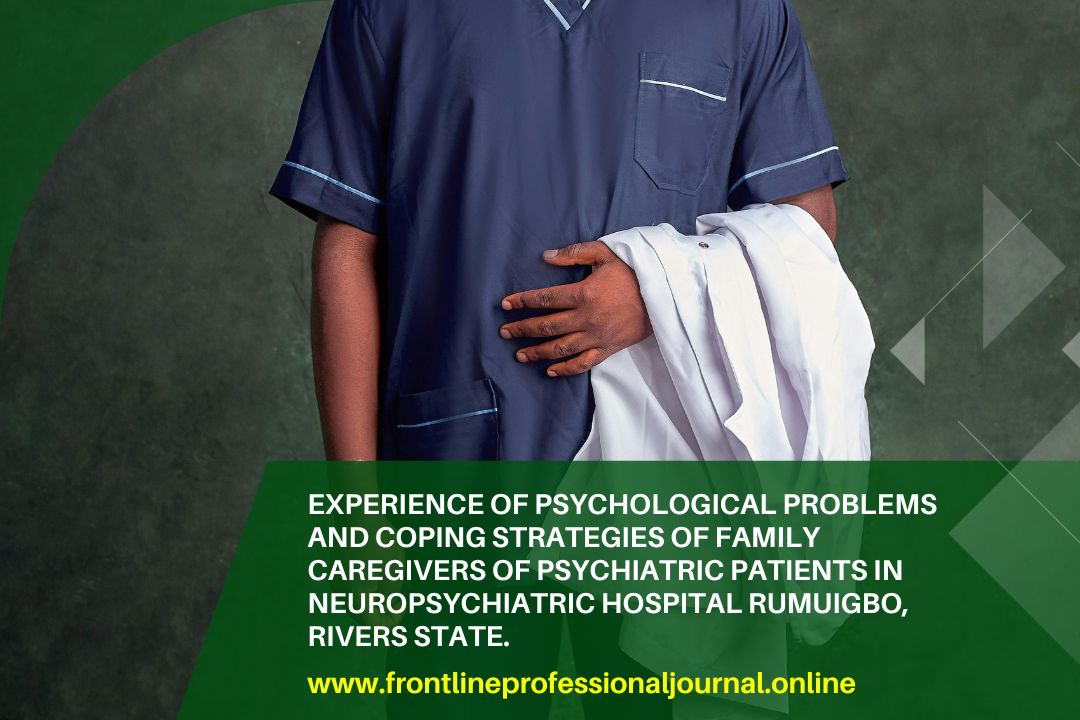Authors: Reuben success Alfred, Isabu Augustina Chikaodili, Gbe Douye, Agama Juan Ayebaekipreye, Fii Tornubari Samuel, Echendu Anwilika Ruth
CITATION: Reuben success Alfred, Isabu Augustina Chikaodili, Gbe Douye, Agama Juan Ayebaekipreye, Fii Tornubari Samuel, Echendu Anwilika Ruth, (2025). Experience of psychological problems and coping strategies of family caregivers of psychiatric patients in neuropsychiatric hospital Rumuigbo, Rivers state. Frontline Professionals Journal 2(9), 111-125
ABSTRACT
Caregiving for a psychiatric patient is a demanding task involving family caregivers in a 24-hours’ job with no rewards, sick leave or pay checks, and this has a negative impact on them. This study explored the experience of psychological problems and coping strategies of family caregivers of psychiatric patients in Neuropsychiatric Hospital Rumuigbo, Rivers State. A Hermeneutic phenomenological qualitative design was adopted for this study. This study involved 22 caregivers. An in-depth open-ended face-to-face interview was conducted on the caregivers who were selected purposively using a structured interview guide. Six steps thematic method of data was assumed which was supported by Nvivo Software version 12. The results were presented in themes, quotes and word cloud. The study consisted of two research questions that were answered with 25 sub-themes in all. It’s revealed that most family caregivers are faced with psychological problems like embarrassment, emotional disturbance, loss of personal time, depression, sleep disturbance, sadness, and lack of productivity, rejection and fatigue. Coping strategies adopted by the caregivers were: support from family, support from church members, support from friends, relying on God, passive appraisal, acceptance and avoidance. It reveals that family caregivers had difficulty coping with psychological problems; however, they all use one form of coping strategy. Future intervention toward alleviating family caregiver’s psychological problems may be connected to improving caregivers coping strategies. There is a need for family support groups to be created for assisting caregivers and advocating for the promotion of their cause in society.








